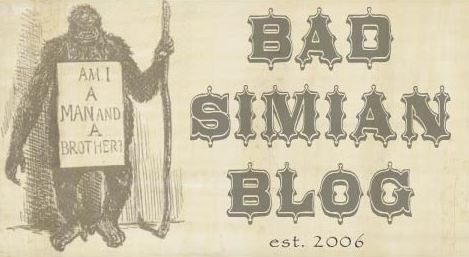REALLY good post, and if you continue here without checking it out, I'm going to sound like a nut on a rant, so I'll wait...
...
See - good post.
Still, I disagree with him that superheroes are for kids, and that adults shouldn't concern themselves with continuity, and that in and of itself has started me thinking about continuity in general.
Okay... first, let's address something I call The Continuity Myth.
My biggest continuity complaint lately has been about Superman and how his history/origin works post Infinite Crisis and One Year Later. I think it's pretty clear that DC doesn't have a good, solid idea of what's what, and the seams are really starting to show. Multiple Phantom Zones, multiple Zods, inconsistent characterizations, flip-flopping creators, etc... are all good examples of it.
But I'm a bit of a geek when it comes to Superman, no doubt, and I tend to be a little overly critical of this sort of thing... so imagine if the NBA decided to start omitting the Lakers worst games because it "made them better", or, let's take it a step farther and imagine that there were multiple teams calling themselves the Lakers, but nobody that played 'em ever mentioned it, or even seemed to notice. Basketball fans would flip the FUCK out, and everybody would wonder why on Earth the people most closely involved were pretending like it wasn't happening.
Or, imagine if several main characters on Days of Our Lives, or General Hospital, who's origins were integral to their personalities, kept referring to their individual backstories differently every time, sometimes adding or deleting established "facts" with every recollection. You know your grandma would completely loose it, and trust me, life would never be the same for any of us.
I could play this game forever, but you see where I'm going.
When it comes to entertainment and interests, adults are not strangers to complicated rules and stories when you stop and think about it. To say that adult comics fans don't have time or reason to worry about continuity because they've got a light bill or kids with a piano concert kind of ignores all of the other stuff adult men and women are into beside work and family.
- ...talented, but jaded creators not paying attention to it, or deliberately ignoring it is.
- ...the big two choosing to sacrifice a loyal fan base in exchange for big name wannabes who don't think they should "waste their talent" on "doing the work" is.
- ...cluttering the market with multiple, somewhat pointless alternate continuities and characters instead of really digging in and focusing on the ones they've already got is.
But Marvel Adventures Avengers #9 featured Modoc (with a "c") and was without a doubt, the most celebrated issue of the series so far, and as much as I enjoyed it, it wouldn't really say it was new reader friendly.

"The Avengers As An Army of Modocs!" - that's one of the biggest in-jokes I've ever seen.
C'mon, I doubt any new readers "got it", but we all know that the Internet crowd ate it up... and with due right - hell, it was a fun comic.
But just because it took place in an easy to define continuity doesn't mean it's not really kind of tangentially playing in the Marvel sandbox - the difference is that this one gets to keep the good stuff and ignore the "bad" stuff without anybody throwing a fit, because the rules are different.
I can't help but think that if Jeff Parker and Co. had done this one in the 616 Marvel U, more people would've read it, those of us who love it, would love it about 1000 times more, and it would've been considered an instant classic the week it hit shelves.
But, hey... it sold out, so what do I know?

2 comments:
I always seem to be in the unoccupied "middle ground" of the "continuity" question.
Basically, I think you should pay attention to continuity, but if there's a mess, continuity shouldn't *stop* you from doing what needs to be done to fix it.
For example, it looks like they're *now* creating a Krypton continuity that's internally consistent, and I think that's a good thing, even if it doesn't address the myriad of other inconsistent bits we've seen in the semi-recent future.
This sort of ties in with one of my favorite comics of last week, the Fantastic Four/Spider-Man #1 with Parker and 'Ringo. Now there is a fun book that anybody with base knowledge of the characters ("One's a super-powered family of explorers and the other was bitten by a radioactive spider!") could read and enjoy.
At the same time, though, you could slot it into any recent timeframe (okay, pre-Civil War, but still) and you still have a fine comic. I sort of miss the "This comic takes place before Awesome X-Men #269..." footnotes.
Post a Comment